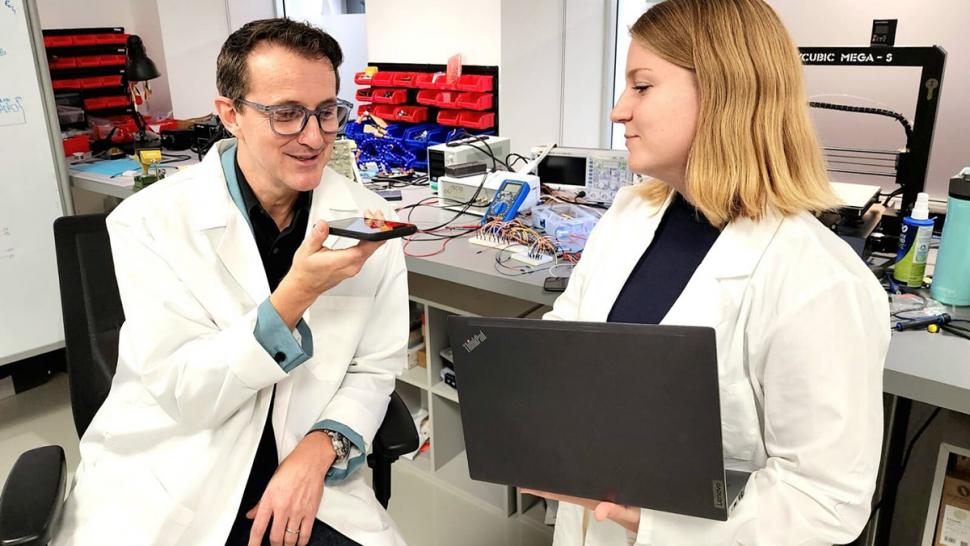
Humber Polytechnic is working with partner Klick Labs on a research study to use cutting-edge technology to mitigate the risk of diabetes in populations vulnerable to the disease.
Humber’s Centre for Innovation in Health & Wellness (CIHW) leverages the depth and breadth of Humber’s expertise and interdisciplinary collaboration to focus on innovative solutions for health equity, prevention and management of chronic diseases, and community health and wellness. They have partnered with Klick Labs to use voice recognition technology to screen for prediabetes among the younger South Asian demographic.
One of the key areas of focus for CIHW is prevention of prediabetes/Type 2 diabetes in the community.
Nearly nine per cent of Canadians live with diabetes with 90 per cent of all cases being diagnosed as Type 2 Diabetes (T2D). South Asians face a higher risk for T2D compared to the general Canadian population. This elevated risk is linked to a combination of genetic factors, lifestyle patterns, and body composition.
Evidence indicates that this population tends to develop the condition at a younger age and lower body mass index levels than other demographic groups. Diabetes in Canada incurs more than $30 billion in direct medical costs annually. Prediabetes precedes T2D and, with lifestyle changes, its onset can be delayed or prevented.
“Early identification of prediabetes, particularly in asymptomatic individuals, is crucial for intervention and risk reduction,” said Vanita Varma, director of the CIHW. “However, the challenge lies in the absence of noticeable symptoms, making diagnosis difficult. Within Humber's health programs, we emphasize the significance of early intervention. This pilot study employs non-invasive and cost-effective methods, such as vocal biomarkers, to contribute to reducing diabetes risk in at-risk populations.”
Through engagement of students and staff from Humber’s Faculty of Health Sciences & Wellness with research staff from both Humber and Klick Labs, the research emplys a machine learning-based acoustic analysis model to identify a specific vocal biomarker in individuals with prediabetes within the South Asian population in the Peel and Toronto regions. Sub-analyses will consider factors such as age, sex, gender, family history, socioeconomic status, smoking, drinking, and postal code and housing.
“Vocal biomarkers are at the cutting edge of digital health research,” said Yan Fossat, senior vice-president at Klick Labs. “Identification of prediabetes by voice with a mobile phone can remove the barriers to diagnostic access that currently exist.”
In October 2023, Fossat and his team announced groundbreaking research in Mayo Clinic Proceedings: Digital Health around the AI model created to detect Type 2 diabetes using 10 seconds of voice.
The Natural Sciences and Engineering Research Council of Canada (NSERC) has provided funding through the Mobilize Research Grant supplemented by Humber and Klick Labs.
As part of Building Brilliance: Our Vision to 2030 and Beyond, we are shedding the traditional constraints of higher education and reimagining a model that both adapts to and shapes the world around us. Humber has a powerful convening ability and we can bring together key players from across the entire ecosystem - nationally and internationally - in ways that others cannot. By 2030, Humber will be the go-to destination for partners who want to solve problems, increase productivity, commercialize their innovations, and succeed in a competitive market. We’ll be their engine of productivity and growth. By making bold decisions around how we fundamentally operate, we can reimagine learning, forge deeper partnerships and drive impact, creating real value and progress. This story is an example of how we are building brilliance by developing deeper partnerships every day.